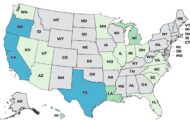The U.S. Department of Agriculture (USDA) has awarded five research grants totaling $4.5 million to four universities to study how to grow beans better. The projects are part of the USAID-USDA Norman Borlaug Commemorative Research Initiative and the Feed the Future Initiative, President Obama’s global hunger and food security initiative which supports local approaches that create long-term solutions to chronic food insecurity problems.
 “Over the next 50 years, we will need to produce roughly as much food for the world’s population as has been produced in the entire history of mankind,” said Catherine Woteki, USDA’s Chief Scientist and Under Secretary for Research, Education and Economics. “A challenge this serious and urgent requires the best and brightest ideas in food and agricultural science. The projects awarded today have the potential to unlock those ideas and improve the production of one of the world’s most vital food crops.”
“Over the next 50 years, we will need to produce roughly as much food for the world’s population as has been produced in the entire history of mankind,” said Catherine Woteki, USDA’s Chief Scientist and Under Secretary for Research, Education and Economics. “A challenge this serious and urgent requires the best and brightest ideas in food and agricultural science. The projects awarded today have the potential to unlock those ideas and improve the production of one of the world’s most vital food crops.”
The universities that were awarded grants are: Iowa State University in Ames, Iowa, which received a $250,000 grant to study routine and reproducible transformation systems for the common bean. Michigan State University, East Lansing, Mich., which received $1.9 million to develop common bean germplasm with resistance to the major soil borne pathogens in East Africa. The University of Nebraska, Lincoln, Neb., which received two grants. One for $250,000 to develop transgenic beans for broad-spectrum resistance against fungal diseases and one for $1.1 million to reduce fungal and Oomycete soilborne problems of the common bean breeds in Eastern and Southern Africa. And Cornell University, in Ithaca, N.Y., $1 million to improve bean yields by reversing soil degradation and reducing soil borne pathogens on small-holder farms in Western Kenya




